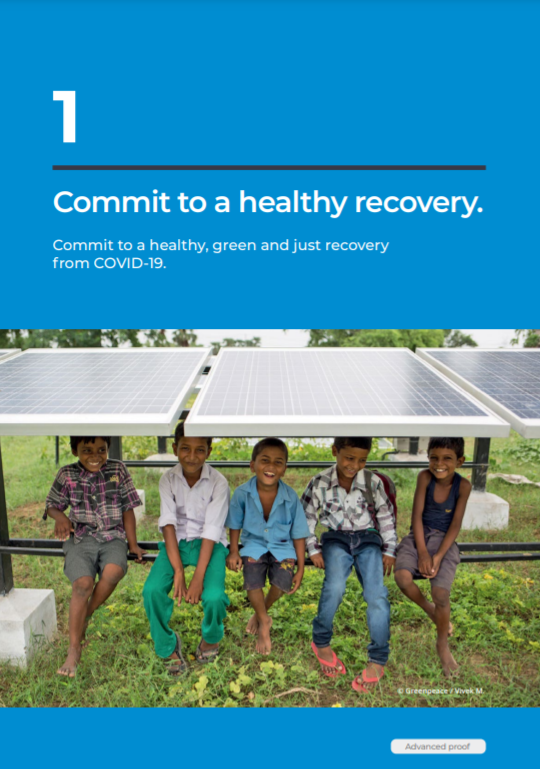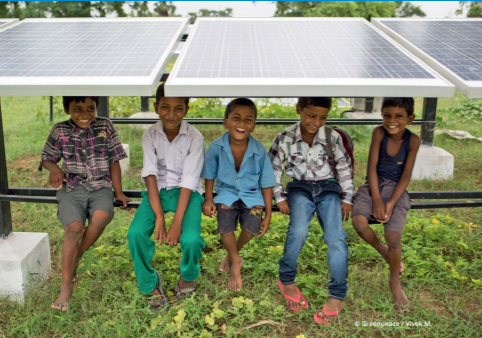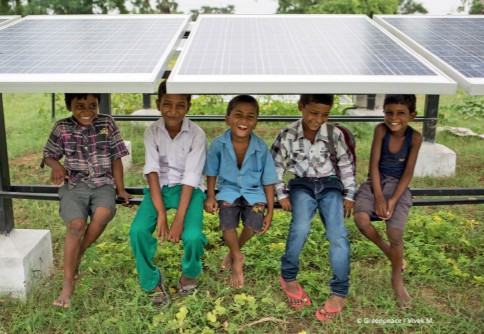Commit to a healthy, green and just recovery from COVID-19.
World Health Organization
October, 2021
This is an excerpt of the report below, focused on the topic above, edited by the Editor of the blog.
The Health Argument for Climate Action
Nigel Topping, COP26 High-Level Climate Action Champion
The development and production of this report were led by Arthur Wyns, Marina Maiero, Alexandra Egorova and Diarmid Campbell-Lendrum from the Department of Environment, Climate Change and Health, WHO.
Commit to a healthy recovery.

Commit to a healthy, green and just recovery from COVID-19.
The COVID-19 pandemic has highlighted the close relationship between the health of people and the health of the planet, and has further exacerbated existing social injustices and vulnerabilities in our communities and our health systems.
The pandemic has also provided an opportunity for building forward better, greener and more equitably[1].
The next few months and years provide a crucial window to align climate change and health goals.
Governments can commit to a healthy and green recovery from COVID-19 by following an evidence-based path to a zero carbon, resilient, and inclusive global economy. This is in line with the WHO Manifesto Prescriptions and “Actionables”, which offer governments a list of priority actions to achieve a green and healthy recovery from COVID-19[2].
Action Points
Commit to a healthy recovery.
- Align climate and health goals. Align COVID-19 recovery efforts with the Paris Agreement goals and the WHO Manifesto for a healthy and green recovery.
- Support a fossil-free recovery. Commit to 100% green stimulus spending and an end to all fossil fuel subsidies, while also ensuring energy access for all.
- Prevent and prepare for the next pandemic. Improve the global capacity for pandemic prevention, preparedness, and response.
- Include health in all policies. Strengthen and support implementation of the Health-in-All-Policies approach at the national and subnational level.
- Commit to vaccine equity. Commit to vaccine equity and address the inequalities that lie at the root of the current climate and health crises.

1.Align climate and health goals.
Scientists, leaders, and the wider public have a growing understanding that unless everyone is safe, no one is safe when it comes to the multiple crises the world is grappling with. Shortterm response and long-term recovery measures and economic stimulus packages therefore need to tackle these crises in tandem. The health community has repeatedly urged governments to align their COVID-19 recovery efforts with the Paris Agreement goals and the WHO Manifesto for a healthy and green recovery[3].
Recovery measures that align climate and health goals are driven by science, prioritise those interventions that bring health, social, cultural and environmental gains, and avoid locking in economic development patterns that will do permanent and escalating damage to the ecological systems that sustain all human health and livelihoods. Examples include setting measures that help avoid a rebound to pre-pandemic air pollution levels, creating more people-centred cities through improved active transport infrastructure[4], and ensuring the COVID-19 response strengthens health systems while reducing health inequities and other health risks at the same time[5].
2.Support a fossil-free recovery.
The burning of fossil fuels is killing us; causing millions of premature deaths every year through air pollutants, costing the global economy billions of dollars annually, and fuelling the climate crisis[6]. Governments and the private sector can support a green and healthy recovery from COVID-19 by: reforming energy subsidies so no public money goes to fossil fuel production; raising money from fossil fuel subsidy reform and taxes to be re-invested in a green recovery; ensuring that public money committed to energy-producing and -consuming activities goes to clean energy sources; while incentivising investments in clean energy and ensuring that no one is left behind in the energy transition[7] [8].
3.Prevent and prepare for the next pandemic.
The COVID-19 pandemic has exacerbated health inequities and vulnerabilities, both within and between countries[9] [10]. Governments can reverse this trend by prioritising healthcare investments for those most at risk, strengthening the capacity of the health workforce, stepping up surveillance and research, addressing the root causes of zoonotic diseases, and investing recovery resources to build climate-smart health systems that are resilient, sustainable and low-carbon[11] [12]. A crucial first step would be to adopt the findings of the Independent Panel for Pandemic Preparedness and Response in order to bolster global resilience and solidarity[13].
4.Include health in all policies.
In order to tackle the converging crises of climate, nature, debt, and growing inequalities, and their grave consequences for the health of current and future generations, policy makers need to break out of their silos and strengthen collaboration and a whole-of-government approach. Governments have many tools at their disposal to ensure COVID-19 recovery initiatives have a positive impact on public health and sustainable development, such as Health Impact Assessments. They can strengthen and support implementation of the Health-in-All-Policies approach at the national and subnational level by improving coordination, monitoring, budgeting and advisory structures[14]. A crucial first step would be for health ministries and organisations to prioritise climate change in their own activities, policies and programmes. Secondly, health stakeholders should be included in all climate decision making processes, and vice versa.
5.Commit to vaccine equity.
The global failure to share vaccines equitably is taking its toll on some of the world’s poorest and most vulnerable people. It will have a lasting and profound impact on socio-economic recovery in low- and lower-middle income countries. New variants of concern mean that the risks of infection have increased in all countries for people who are not yet protected by vaccination[15]. As with any global crisis, until everyone is safe, no one is safe.
To fully address the urgency of the climate and health crises, governments need to commit to vaccine equity and address the inequalities that lie at the root of so many global health challenges, including the climate crisis. Any inaction on tackling vaccine inequity and climate change will have the largest health consequences for the most disadvantaged communities. Worldwide access to COVID-19 vaccines offers the best chance for slowing the coronavirus pandemic, saving lives, and securing a global recovery that is centred around equity, resilience, and sustainability[16]
Case Studies
- Aligning the climate and health goals of member states in the WHO European Region.
The Working Group on Health in Climate Change, established under the European Environment and Health Process, brings together WHO Member States and other partners from the WHO European Region. The HIC provides a regional multilateral platform for dialogue and cooperation, and supports the integration of health considerations into national climate policies across the region. Learn more here.
- A city-led green recovery from COVID-19 in Italy.
The city of Milan in Italy is working on a green recovery from COVID-19 that is rooted in the principles of equity and climate action. As part of the C40 Global Mayors COVID-19 Recovery Task Force, the city is cutting its emissions, freeing up public space, providing support to workers, and creating a more resilient and equitable city. Learn more here.
- Solar fridges for vaccines.
An initiative developed by the GAVI Alliance is supporting health care facilities to use solar panels to power vaccine fridges. This ensures health care facilities, often with no other source of electrical power, are able to keep vaccines safe and ready to be used to prevent disease. Learn more here.
- The future we choose — planning for a healthy recovery in Australia.
Over 100 health professionals and stakeholders in Australia came together in a series of workshops to develop a set of possible scenarios for the country to recover from COVID-19 and tackle climate change. The potential alternative futures they developed show how important today’s policy decisions are for the health and wellbeing of people. Learn more here.
- ASEAN countries join forces to exit the pandemic.
In a united response to COVID-19, the countries of the ASEAN grouping developed the Comprehensive Recovery Framework, which outlines strategies to ensure that the economies in the region recover from the pandemic and emerge as more resilient, inclusive, and sustainable societies. Learn more here.
References
See the original publication
Suggested citation
COP26 special report on climate change and health: the health argument for climate action. Geneva: World Health Organization; 2021.
Originally published at https://www.who.int












